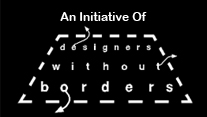David Stairs

Dick Clark at the Moulin Rouge by David Stairs
In a land governed by capital, it comes as no surprise that so much value is attached to celebrity. One of the first great modern personalities, Oscar Wilde, said, “Ambition is the last refuge of the failure.” Thus, it would seem the cult of celebrity sets us all up to fail, encouraging us to emulate the false god popularity.
Celebrated people are everywhere in capitalist media: athletes shilling insurance, actresses gushing over perfume, leading men expressing ecstasy for their luxury vehicles. Louis Vuitton once even coaxed Mikhail Gorbachev, former General Secretary of the Communist Party of the Soviet Union, to pose for one of its magazine ads. Look out Xi Jinping!
Part of the problem is that we reward narcissism. Internet influencers reap huge followings for the slimmest of accomplishments. Advertising has been quick to take advantage of this, fanning the flames of personality hysteria. Grand standers like Elon Musk provoke reactions with hyperbolic statements some take as gospel.
Second-tier personalities plump pillows and hawk appliances, salesmen elevated to fame by the sheer banality of their schtick. You see them on TV, in public transit, online, and at the ball park, playing the buffoon for profit. Or as Dave Thomas the founder of Wendys said: “You are what you eat. Which makes me cheap, quick and easy.”
Color and commentary talking heads wax poetic as they regurgitate a torrent of statistics and anecdote in an effort to make the endless repetition of sports seem compelling, “the thrill of victory and the agony of defeat” as ABC’s Wide World of Sports used to put it.
For others, celebrity is of the Warholian fifteen minute variety: game show screamers, disaster interviewees, and reality show wannabes, fame barely stopping to grace them with a glancing caress.
In a society where change is rapid, history is unpopular. And yet, even where people know more about pop culture than anything else, such clues on Jeopardy need to be tailored to events of the last couple decades or they are missed.
The bully pulpit of social media elects new representatives to the pantheon of infamy with each news cycle. Whether a horn-headed QAnon protester storming the Capitol, a womanizing actor’s sexist remarks, or a misguided racist congresswoman from Georgia, with social amnesia as the prevailing philosophy, there is no shortage of losers to choose from.
Attention spans are actively reduced from advertising’s 30-second spot to TikTok’s six-second span to Hinge, the dating app that disappears after use. Who needs memory when everyone is living in the moment?
Of course, not everyone trades in instantaniety. Novelists and film makers fish in the oceans of memory. Television series follow story arcs based upon careful writing, and photographers document the present for posterity.
The fact that the vast horde of the populace is satisfied with their cupidity, gullability, and naivité only seems to occur to cranks and curmudgeons, those self-styled critics of society occupying the pedestals of academia and media flame.
And yet, outbursts of populist anger are still possible in the republic of capital. When an alliance of hackers and gamers could stop short-selling hedge fund managers in their tracks by using a Reddit finance bulletin board to prop up GameStop shares, perhaps a unique form of celebrity is upon us. In bringing down Robinhood, a group of real-life Merry Men were able to steal from the rich and infamous by giving to the poor and hacker-ish.
Wilde also said, “No man is rich enough to buy back his past.” Of course, he didn’t live in an era of corporate stock buy-backs, and it is a sentiment much too subtle for our celebrity former president. But maybe some of the rest of us can still learn from our failures, one grudging trade at a time.
David Stairs is the founding editor of the Design-Altruism-Project.










